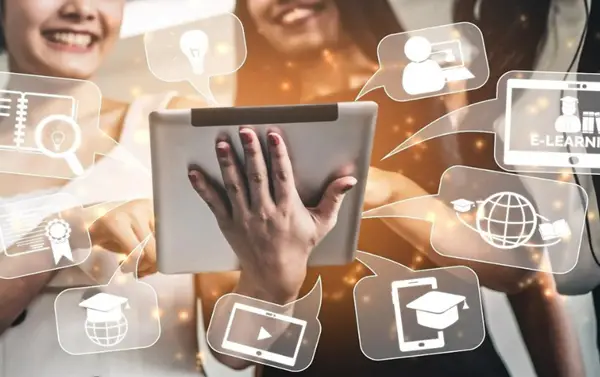
The landscape of education is constantly evolving, and 2025 promises to be no exception. As we navigate a rapidly digitizing world, new trends are reshaping the way we learn, teach, and interact with educational tools. From the integration of cutting-edge technologies to a renewed focus on inclusivity, the education sector is undergoing significant transformations. Below, we explore the key education trends to watch in 2025 and their potential impact on learners and educators alike.
The Rise of Artificial Intelligence in Education
Artificial Intelligence (AI) is revolutionizing education by making personalized learning experiences more accessible than ever. AI-powered tools can analyze student performance, identify strengths and weaknesses, and create tailored learning plans to suit individual needs. For instance:
- Adaptive Learning Platforms: These platforms, powered by AI, adjust the difficulty level of content based on the learner’s progress.
- AI Tutors: Virtual tutors provide round-the-clock assistance, enabling students to clarify doubts instantly.
- Enhanced Assessments: AI-driven analytics ensure more accurate evaluations of student performance.
Institutions adopting AI are not only enhancing academic outcomes but also fostering engagement and retention.
Hybrid Learning Models
The pandemic era paved the way for hybrid learning models, blending traditional classroom settings with online education. In 2025, this trend is set to solidify as a staple of modern education. Key aspects include:
- Flexibility: Students can choose between in-person and virtual attendance based on their preferences or circumstances.
- Technology Integration: Advanced tools like augmented reality (AR) and virtual reality (VR) are being utilized to bridge the gap between physical and digital learning environments.
- Collaborative Tools: Platforms like Zoom, Microsoft Teams, and Google Classroom continue to evolve, providing seamless communication and collaboration among students and educators.
Hybrid learning ensures inclusivity and adaptability, catering to diverse learner needs.
Focus on Lifelong Learning and Upskilling
As industries rapidly evolve, the demand for upskilling and lifelong learning has surged. The education sector is responding by:
- Micro-Credentials: Short, focused courses provide learners with specific skills in areas like coding, data analytics, or digital marketing.
- Online Learning Platforms: Platforms like Coursera, edX, and Skillshare are offering industry-aligned courses accessible to learners globally.
- Corporate Partnerships: Collaboration between educational institutions and companies ensures that programs meet real-world job market demands.
This shift emphasizes the need for continuous education beyond traditional schooling.
Gamification in Learning
Gamification, the incorporation of game-like elements in education, is becoming a powerful tool for engagement. By making learning fun and interactive, gamification encourages deeper participation. Key features include:
- Reward Systems: Badges, points, and leaderboards motivate learners to achieve their goals.
- Immersive Experiences: AR and VR technologies create engaging, hands-on experiences in subjects like history, science, and engineering.
- Problem-Solving Skills: Game-based learning fosters critical thinking and decision-making abilities.
Gamification aligns with the evolving preferences of younger generations, making education more relatable and enjoyable.
Increased Emphasis on Mental Health
The importance of mental health in education is gaining widespread recognition. In 2025, schools and institutions are prioritizing mental well-being through:
- Dedicated Counseling Services: On-campus and virtual counseling services are becoming standard offerings.
- Mindfulness Programs: Incorporating mindfulness and stress management techniques into curricula helps students cope with academic pressures.
- Teacher Training: Educators are being trained to recognize and address signs of mental distress among students.
A healthy mind fosters better learning outcomes, making mental health initiatives a cornerstone of educational progress.
The Growth of EdTech Startups
The EdTech sector is booming, with startups driving innovation in education. Some notable trends include:
- Customizable Learning Paths: Platforms offering personalized learning journeys tailored to individual goals.
- Interactive Content: EdTech solutions focus on engaging multimedia content to enhance understanding.
- Global Access: Startups are democratizing education, making quality learning accessible to students in remote or underserved areas.
Investments in EdTech are expected to soar, further transforming the educational landscape.
Sustainability in Education
Sustainability is becoming a critical focus in education, with schools and universities adopting eco-friendly practices such as:
- Digital Transition: Reducing paper usage by moving to digital textbooks and resources.
- Green Campuses: Institutions are incorporating renewable energy, waste management, and green building designs.
- Curriculum Integration: Courses on environmental science and sustainability are being prioritized.
Educating future generations about sustainability ensures a more responsible approach to global challenges.
Culturally Responsive Education
Diversity and inclusion are key themes in 2025’s educational trends. Culturally responsive education involves:
- Inclusive Curricula: Incorporating diverse perspectives and histories into lesson plans.
- Equity in Access: Ensuring all students, regardless of background, have equal opportunities to learn.
- Community Engagement: Strengthening ties between schools and local communities to foster mutual understanding.
Cultural responsiveness prepares students for a globalized world while promoting respect and empathy.
STEM and STEAM Education
Science, Technology, Engineering, Arts, and Mathematics (STEAM) education continues to dominate, equipping students with critical skills for the future. Key developments include:
- Hands-On Learning: Robotics kits, coding workshops, and maker spaces encourage practical application of concepts.
- Interdisciplinary Approach: STEAM integrates creativity and technical skills, preparing students for complex problem-solving.
- Focus on Girls in STEM: Initiatives are being introduced to bridge the gender gap in STEM fields.
By prioritizing STEAM, educators are nurturing innovation and critical thinking skills.
The education trends shaping 2025 reflect a dynamic and transformative landscape, driven by technology, inclusivity, and the need for continuous learning. From AI-powered tools to culturally responsive teaching methods, these changes promise to redefine the way we approach education. As we embrace these innovations, the goal remains clear: to create a more equitable, engaging, and effective educational experience for all.
